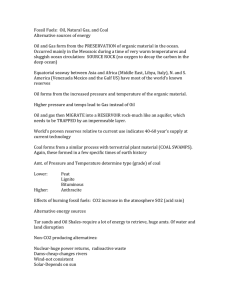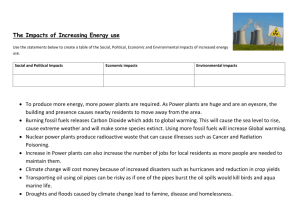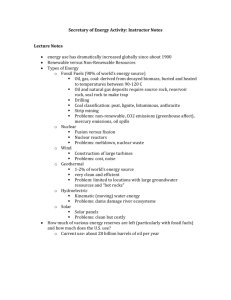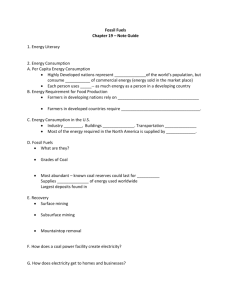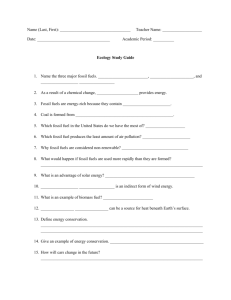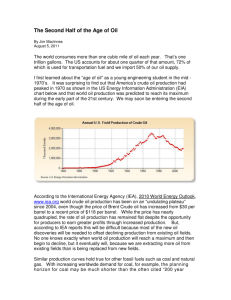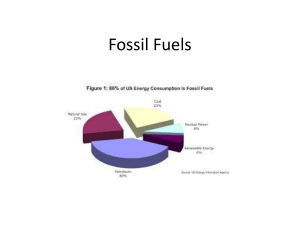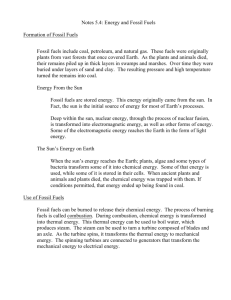Fossil Fuels - University of Hawaii at Hilo
advertisement
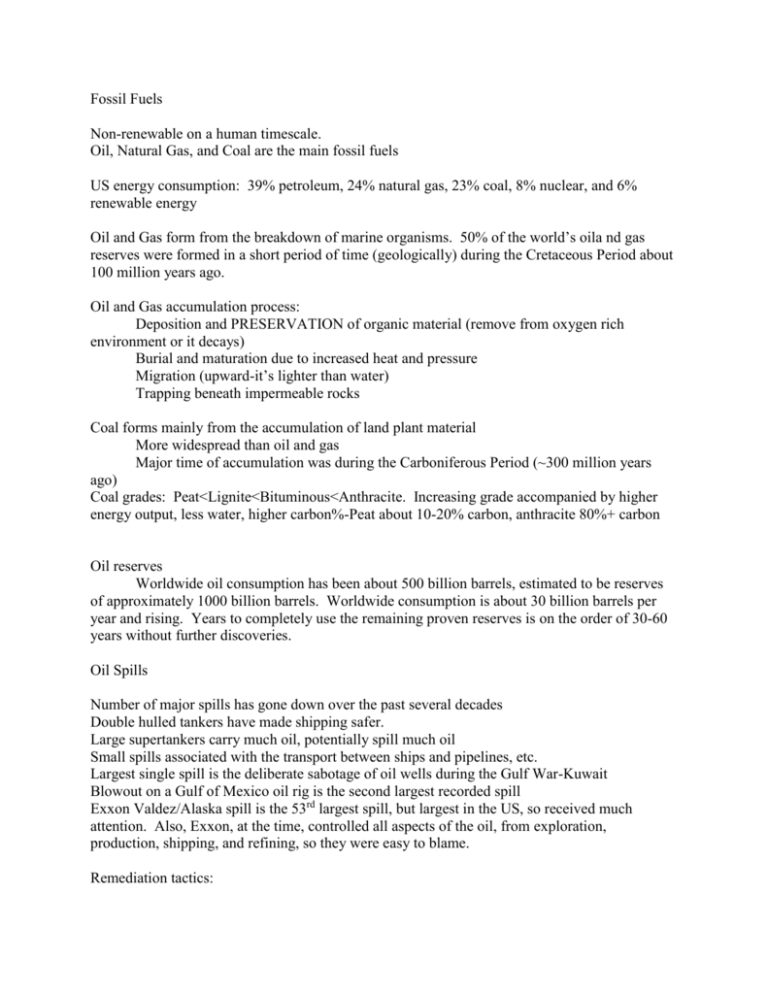
Fossil Fuels Non-renewable on a human timescale. Oil, Natural Gas, and Coal are the main fossil fuels US energy consumption: 39% petroleum, 24% natural gas, 23% coal, 8% nuclear, and 6% renewable energy Oil and Gas form from the breakdown of marine organisms. 50% of the world’s oila nd gas reserves were formed in a short period of time (geologically) during the Cretaceous Period about 100 million years ago. Oil and Gas accumulation process: Deposition and PRESERVATION of organic material (remove from oxygen rich environment or it decays) Burial and maturation due to increased heat and pressure Migration (upward-it’s lighter than water) Trapping beneath impermeable rocks Coal forms mainly from the accumulation of land plant material More widespread than oil and gas Major time of accumulation was during the Carboniferous Period (~300 million years ago) Coal grades: Peat<Lignite<Bituminous<Anthracite. Increasing grade accompanied by higher energy output, less water, higher carbon%-Peat about 10-20% carbon, anthracite 80%+ carbon Oil reserves Worldwide oil consumption has been about 500 billion barrels, estimated to be reserves of approximately 1000 billion barrels. Worldwide consumption is about 30 billion barrels per year and rising. Years to completely use the remaining proven reserves is on the order of 30-60 years without further discoveries. Oil Spills Number of major spills has gone down over the past several decades Double hulled tankers have made shipping safer. Large supertankers carry much oil, potentially spill much oil Small spills associated with the transport between ships and pipelines, etc. Largest single spill is the deliberate sabotage of oil wells during the Gulf War-Kuwait Blowout on a Gulf of Mexico oil rig is the second largest recorded spill Exxon Valdez/Alaska spill is the 53rd largest spill, but largest in the US, so received much attention. Also, Exxon, at the time, controlled all aspects of the oil, from exploration, production, shipping, and refining, so they were easy to blame. Remediation tactics: offloading unspilled oil from tanker skimming light oil from water washing oil from beach adding fertilizer to stimulate biodegration of oil burning sinking of tanker (tried with disasterous results off of Spain) Effects of buring fossil fuels CO2 emissions (carbon + oxygen) Carbon dioxide levels have increased from approximately 310 ppm to about 370 ppm in the past 50 years. May impact the climate of the earth. Sulfur dioxide released from buring of fossil fuels, especially coal, produces acid rain.
